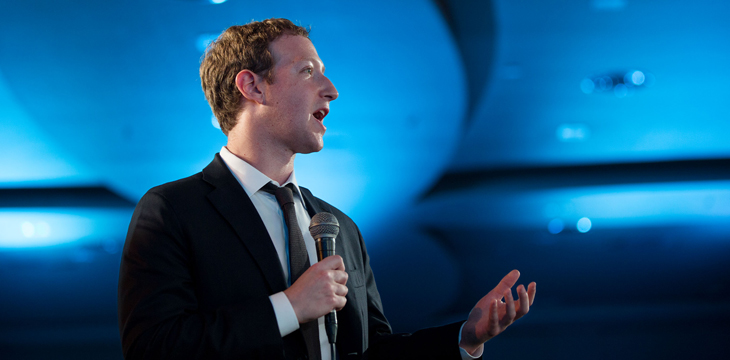|
Getting your Trinity Audio player ready...
|
Decentralization is the future, but there still lies plenty of challenges to solve before it becomes the standard of the internet. This is according to Facebook founder Mark Zuckerberg. In a recent interview, Zuckerberg addressed several issues regarding the future of the internet as well as Facebook’s ongoing initiatives to better the platform.
Zuckerberg was speaking with Harvard law professor, Jonathan Zittrain, an expert in the intersection of law and technology. This was the first in a series of conversations he pledged to have in his 2019 resolutions. He pledged to fix the interaction between tech and society.
Everyone should have control over their data and who he shares it with. This can be possible with the use of blockchain technology, Zuckerberg stated. One of the main areas of impact would be in authentication.
“One of the things I’ve been thinking about a lot, and use of blockchain that I’m potentially interested in -although I haven’t figured out how to make this work yet – is around authentication and basically granting access to your information to different services. So, replacing the notion of what we have with Facebook Connect with something that’s fully distributed.”
Such a system would be immensely beneficial, more so to developers, Zuckerberg explained. Being a developer himself, he understands the frustration that comes with using services such as Facebook and Google. Such services require developers to adhere to a certain code of conduct, sometimes against their will. If they fail to adhere to this code, they can be cut off from their target clients.
On the flipside, such decentralization would expose the users to exploitation, Zuckerberg warned. As a demonstration, he referred to the Cambridge Analytica case. Facebook users had shared their data on their own consent with Cambridge University. One rogue developer ended up selling the data to the data analysis firm, a violation of Facebook’s terms. The data had then been used for political purposes. Such is the danger that eliminating an intermediary would expose users to.
Zuckerberg also addressed the issue of privacy in communication, an issue that has become quite contentious. Following the Cambridge Analytica scandal, calls for strict regulation regarding privacy of data have become widespread.
According to him, encryption is the way to go. Every day, over 100 billion private messages are transmitted over Facebook’s platforms including Messenger, Whatsapp and Instagram. The firm has continued to protect this data successfully and will continue to do so, Zuckerberg pledged. Currently, all Whatsapp messages are encrypted, while Messenger’s messages are partially encrypted. In the future, all messages will be encrypted to protect user privacy.

 02-24-2026
02-24-2026 




